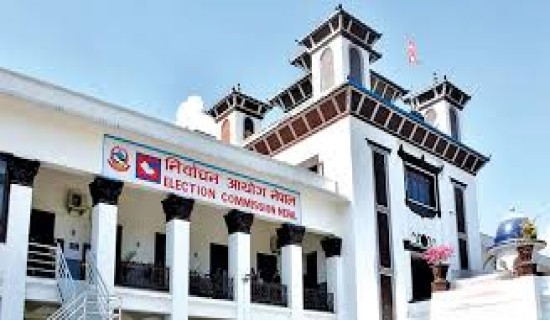- Tuesday, 3 March 2026
Parties Turn To People
Political parties are considered the agents of change. Major social, political and economic transformations have become possible when the political parties, formed in difficult situation, dared to dismantle the status quo that stood against the tide of time. These forces were the key to replace autocratic feudal systems and repressive colonial rules. Crucial democratic movements sought to establish civil liberty, freedom of press, independent judiciary, economic equality and social justice. In Nepal, political parties were organised in course of overthrowing the despotic Rana rule. They also fought tooth and nail to end the party-less Panchayat system. Their fight for the emancipation of people has reinforced their popularity and credibility in the masses. The established parties often boast of their role in scores of democratic uprisings and landmark social transformations.
However, they need to be constantly tested and proven capable by translating the election mandate into action. The people do not always vote for the parties just because they had played a role in democratic movements. This is a reason they often nurture bonhomie with the people. It is also imperative for them to channel the people's voice and concerns into policy documents. They roll out programmes, agenda and slogans to reach out to the people so as to garner their support during the polls. Of late, major and minor political parties have been engaged in a series of political campaigns, targeting the upcoming three-tier polls to be held in 2027. Some parties, including the opposition CPN-UML and Rastriya Swotantra Party (RSP) have launched 'Mission 84' to connect with the grassroots and increase party members.
The ruling Nepali Congress has just concluded its Mahasamiti meeting, mobilising the party functionaries from the centre to the local grassroots. Some days ago another ruling party CPN-Maoist Centre also wrapped up its statute convention in which it decided to form all committees through direct elections. The NC has initiated 'Congress with the Community' campaign to interact with the ordinary people and familiarise with their concerns and needs. Similarly, the UML's drive aims to bolster party organisation by raising the burning issues such as unemployment and social justice. Last September, the Maoist Centre launched ‘Maoist with People: A Campaign for Special Transformation’ with a view to winning the hearts and votes of people. The RSP has focused on the electoral reforms by demanding that provisions of absentee voting, the right to recall and the right to reject be implemented.
Janata Samajbadi Party is working to forge alliances with regional parties to push for its political agenda while Rastriya Prajatantra Party is drumming up public support for the restoration of monarchy and Hindu state. It is natural for the parties to approach the people with their agenda. Now the next general elections are about four years away. In November 2022, the country conducted the three-tier polls successfully. The pertinent question is – why are the parties pitching for votes to be cast in 2027 instead of fulfilling the promises they made before the people during the last elections? The federal parliament has been unable to pass important Bills needed to consolidate the federal set-up. Some critics argue that some parties floated 'Mission 84' to evade their responsibilities towards the public. The parties must put the people and nation at the centre no matter when and how they conduct their campaigns.
















